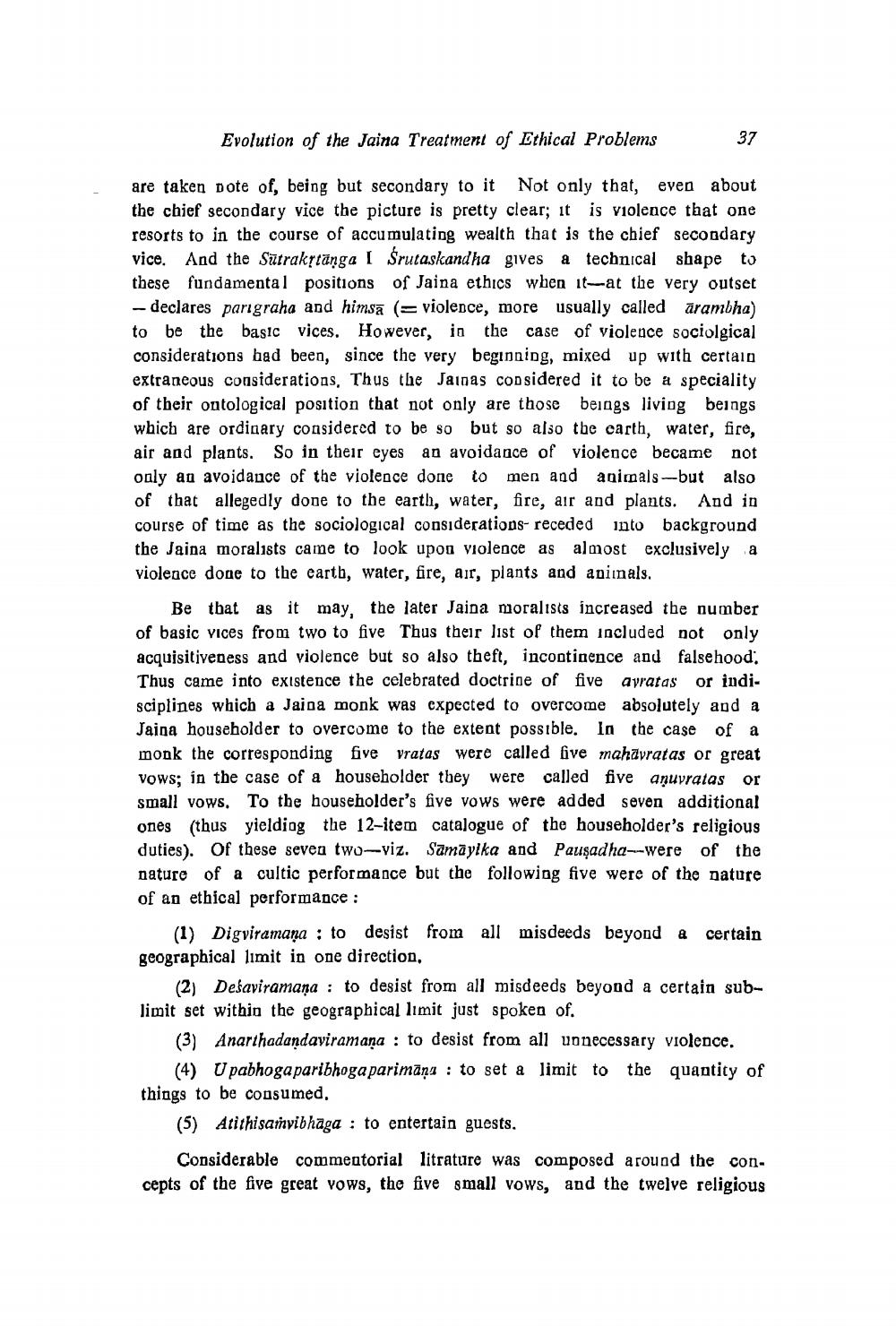________________
37
Evolution of the Jaina Treatment of Ethical Problems
are taken note of, being but secondary to it Not only that, even about the chief secondary vice the picture is pretty clear; it is violence that one resorts to in the course of accumulating wealth that is the chief secondary vice. And the Sutrakṛtānga I Śrutaskandha gives a technical shape to these fundamental positions of Jaina ethics when it at the very outset - declares paragraha and himsa (= violence, more usually called ārambha) to be the basic vices. However, in the case of violence sociolgical considerations had been, since the very beginning, mixed up with certain extraneous considerations. Thus the Jainas considered it to be a speciality of their ontological position that not only are those beings living beings which are ordinary considered to be so but so also the earth, water, fire, air and plants. So in their eyes an avoidance of violence became not only an avoidance of the violence done to men and animals-but also of that allegedly done to the earth, water, fire, air and plants. And in course of time as the sociological considerations- receded into background the Jaina moralists came to look upon violence as almost exclusively a violence done to the earth, water, fire, air, plants and animals.
Be that as it may, the later Jaina moralists increased the number of basic vices from two to five Thus their list of them included not only acquisitiveness and violence but so also theft, incontinence and falsehood, Thus came into existence the celebrated doctrine of five avratas or indisciplines which a Jaina monk was expected to overcome absolutely and a Jaina householder to overcome to the extent possible. In the case of a monk the corresponding five vratas were called five mahavratas or great vows; in the case of a householder they were called five aṇuvratas or small vows. To the householder's five vows were added seven additional ones (thus yielding the 12-item catalogue of the householder's religious duties). Of these seven two-viz. Sāmāylka and Pausadha-were of the nature of a cultic performance but the following five were of the nature of an ethical performance :
(1) Digviramana to desist from all misdeeds beyond a certain geographical limit in one direction,
(2) Desaviramana to desist from all misdeeds beyond a certain sublimit set within the geographical limit just spoken of.
(3) Anarthadandaviramana to desist from all unnecessary violence. (4) Upabhogaparibhoga parimana to set a limit to the quantity of things to be consumed.
(5) Atithisamvibhaga: to entertain guests.
Considerable commentorial litrature was composed around the concepts of the five great vows, the five small vows, and the twelve religious




